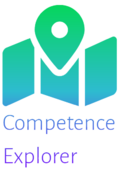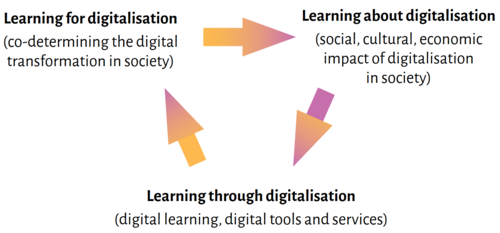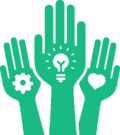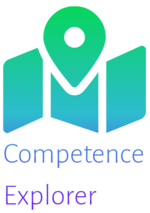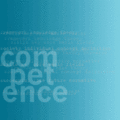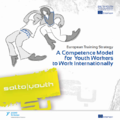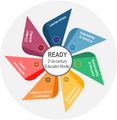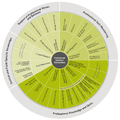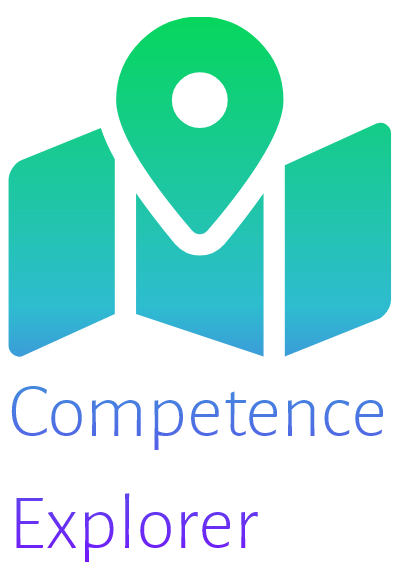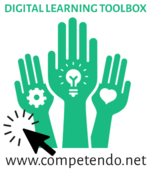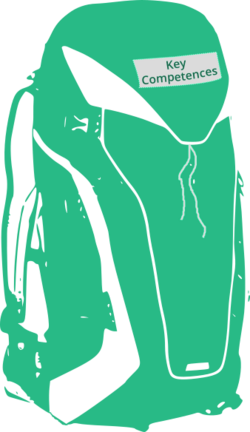Contents
Lifelong Perspective on Education, Learning or Training
From a lifelong learning perspective, it is a short time people spend in educational institutions. Outside of formal learning settings they continue self-development, gain new insights and shape their personalities. This view on learning as a continuous, transformative and diverse process is becoming more important for societies in transitions.
Those who see themselves as learners must therefore be particularly competent in reflecting on and articulating their own learning desires and need the ability to learn independently of an accompanying educational structure. Competence-oriented educational programs therefore not only convey content, but also always support the development of these transversal competences.
Continous learners are also dependent on educational opportunities that are open at all stages of life. Non-formal education in particular has something to offer here, as it is not tied to formal training paths, can respond to current needs and can therefore also react under conditions of social and demographic change.
Human-centered social change requires individuals feeling capable to address challenges and to co-create a situation in an often ambigous and open context. A transversal understanding of learning is becoming crucial in here, helping learners in mobilising knowledge, skills and attitudes acquired in diverse contexts and social roles. In this perspective the meaning of competence "involves the ability to meet complex demands, by drawing on and mobilizing psychosocial resources (including skills and attitudes) in a particular context" (OECD).
Competence (OECD)
"(Competence) involves the ability to meet complex demands, by drawing on and mobilizing psychosocial resources (including skills and attitudes) in a particular context." (OECD)
Key Competences for Lifelong Learning
"Competences are defined as a combination of knowledge, skills and attitudes, where:
- knowledge is composed of the facts and figures, concepts, ideas and theories which are already established and support the understanding of a certain area or subject;
- skills are defined as the ability and capacity to carry out processes and use the existing knowledge to achieve results;
- attitudes describe the disposition and mind-sets to act or react to ideas, persons or situations."
Competence-oriented education is a systematic approach that focuses on the abilities of individuals and aims to strengthen them comprehensively. Learning becomes a partnership between educators and learners and a cooperative social process. The approach combines knowledge, practical skills and attitudes and works closely with real-life challenges. It integrates the training of important transversal skills that are necessary in many social roles and situations.
Reasons for Competence-based Learning
- Considers all learners’ experience from diverse situations, roles and life phases as relevant.
- Goes beyond knowledge-centred teaching, working also on attitudes, values and skills, and reflect how they interplay.
- Takes the individual learner seriously and tailors the learning design to their needs.
- Strengthens individual ownership of their own learning, encourages work on personal competence and the building the ability to learn-to-learn.
- Sees learning as a social and cooperative process – between classroom and real life, formal, non-formal and informal learning, and also between societal sectors.
- Appreciates the diversity of perspectives and learning styles in a group as a potential (instead of trying to even these qualities).
- Is flexible, because it understands learning as a non-linear process instead of forcing it into an overly linear curriculum.
What Competence-centered Learning Should Not Be
- A new layer of bureaucracy: It's intended to give learners and teachers more freedom instead more rules or procedures. It requires flexible teachers/facilitators and more freedom for learners.
- Tailorist instead tailor-made learning: It's a humanist and holistic approach aiming to support autonomy, not usability. However, some promoters of competences misunderstand competence-learning as emphasizing on skill training only.
- Optimization without development: Competence is not a self-optimization tool nor for assessing the fittest or increasing competitiveness. They are an instrument for individual and free personal development.
- Doing without thinking: Competence-centered learning involves knowledge, attitude and skills. But some understand that it is a practice-only approach. However, successful action is not possible without the ability of a learner to assess and reflect on activities and goals.
Competence Explorer
- Our tool for an overview of different competence frameworks: Competence Explorer
- Browse the competence models and their definitions
- Learn which of these are relevant to your work
Democracy- and human rights-related education and learning approaches that bridge the gap between a systemic understanding of society and the concrete empowerment of learners in a specific (local) context are competence-oriented.
Education encompassing knowledge, action and attitudes is the basis for forms of education such as democracy and human rights education, which aim at the protection of democracy, the empowerment of people as well as at democratic change. Education for democratic citizenship includes learning...
- Democracy as a form of governance, including principles, structures and rights.
- Democracy as a form of living and learning, including democratic attitudes and habits.
- Democracy as a form of society, including social and participatory processes and relations.
Goals of Human Rights Education
- Learning about human rights, knowledge about human rights, what they are, and how they are safeguarded or protected;
- Learning through human rights, recognising that the context and the way human rights learning is organised and imparted has to be consistent with human rights values (e.g. participation, freedom of thought and expression, etc.) and that in human rights education the process of learning is as important as the content of the learning;
- Learning for human rights, by developing skills, attitudes and values for the learners to apply human rights values in their lives and to take action, alone or with others, for promoting and defending human rights.
Source: Council of Europe, COMPASS
The digital transformation is one example, illustrating how our learning concepts and understanding of education might change toward a holistic perspective.
Articles




